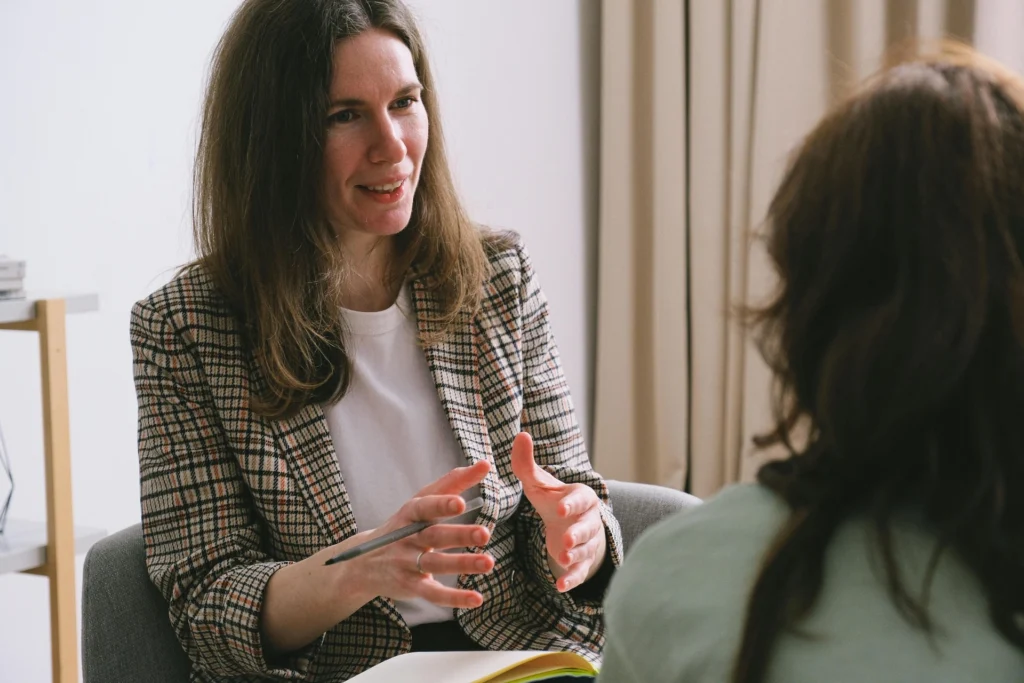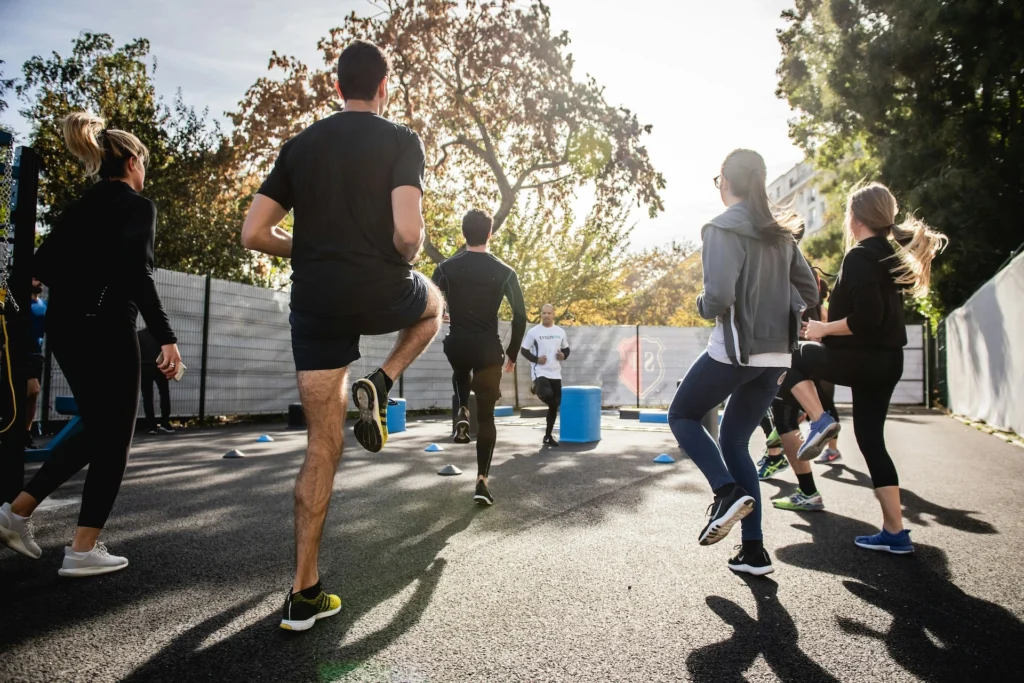Day IOP: Intensive Outpatient Program During the Day
Balancing recovery with responsibilities like work, school, or family life is possible—and our North Carolina Day Intensive Outpatient Program (IOP) makes it happen. Our outpatient program helps you or your loved one recover from addiction—without stepping away from daily life.
Whether transitioning from inpatient care, strengthening coping skills, or looking for a “daytime IOP near me,” Tree House Recovery is here to help. We deliver holistic, evidence-based treatment that fits into your life—not the other way around.
TL;DR: Our Day Intensive Outpatient Program (IOP) in Wilmington offers structured, evidence-based addiction treatment without disrupting daily life. Morning therapy sessions (M/W/F, 9 AM–12 PM) offer several benefits for people in recovery.
What Is a Day Intensive Outpatient Program?
A daytime intensive outpatient program is a structured outpatient treatment option for people experiencing addiction or mental health conditions. Compared to inpatient programs, you can continue working or maintaining other daily responsibilities and return home after treatment.
Day IOP is ideal for:- Working adults looking for flexible addiction treatment
- Clients stepping down from a higher level of care
- Anyone searching for a Wilmington IOP program that offers real structure and lasting change
Holistic Lifestyle in
Wilmington NC
90-Day Drug and Alcohol Outpatient Program During the Day
-
You’re ready to take on life’s responsibilities while reinforcing the skills that keep you grounded in recovery. Our daytime IOP offers the structured, supportive environment you need to stay focused, do the hard work, and build a fulfilling, sober life.
Monday – Wednesday – Friday
9:00AM to 12:00PM
What Happens During Day IOP?
Our morning IOP is designed to help you heal your mind, body, and social well-being. Evidence-based care and holistic practices build the foundation for lasting recovery. These practices include individual counseling, mindfulness techniques, and group therapy. Together, they help you build a plan that’s both healthy and sustainable.
Individual Therapy
Individual therapy offers a safe, confidential setting to work through behavioral health conflicts connected to addiction. A licensed addiction counselor guides one-on-one sessions on personalized support and growth.2
Benefits of one-on-one therapy include:
- Personalized treatment plans: Sessions are designed to address a person’s challenges, strengths, and goals in addiction recovery.
- Confidential conversations: Clients can express their emotions and discuss sensitive topics privately and nonjudgmentally.
- Structure and support: Clients actively build a consistent, trusting bond with their counselor to strengthen treatment outcomes.3
Through weekly sessions, clients will learn the foundations for purposeful recovery: building emotional resilience and maintaining strong relationships.


Group Therapy & Peer Support
Group therapy is a form of talk therapy where peers share experiences and support one another in recovery.
Common types of group therapy in treatment settings include:
- Relapse Prevention Group: Focused on identifying high-risk situations, developing coping strategies, and sustaining long-term sobriety.
- Dialectical Behavior Therapy (DBT) Groups: Highly structured sessions that teach mindfulness, distress tolerance, and emotional regulation skills.
- Expressive Therapy Groups: Creative, healing spaces where clients engage in guided exercises using art, music, or movement, followed by reflection and group sharing.
Process groups meet a basic human need: connection. Clients don’t just discuss how they feel in these group therapy sessions. Instead, they are building a sense of community and belonging, powerful tools to fight back against relapse.
Evidence-Based Therapies
Evidence-based therapies are the backbone of effective, personalized addiction treatment. Scientific research supports these therapy approaches and proves they improve treatment outcomes.4
Some evidence-based practices in our drug and alcohol rehab program include:
- Cognitive behavioral therapy (CBT): An effective therapy that helps clients understand and reshape their behaviors rooted in addiction.5
- Eye movement desensitization and reprocessing (EMDR) therapy: A structured trauma-focused therapy that helps clients heal from traumatic memories connected to substance use.6
- Dialectical behavior therapy (DBT): Based on CBT, DBT helps people accept the reality of their actions and behaviors and how to change them.7
Evidence-based treatments for addiction help you stay in recovery long-term. They also strengthen emotional resilience, support trauma healing, and encourage lasting behavior change.


Holistic Treatment Offering
Our Wilmington IOP in the day features holistic therapies that heal the whole person—not just the symptoms of addiction. When treatment plans include mind-body approaches, clients take an active role in their recovery. This active role improves their chances of long-term success.
Our holistic treatment options in Wilmington include:
- Fitness therapy: Guided workouts in our private gym help clients rebuild strength, improve brain health, and regain physical energy lost to substance use.8
- Environmental therapy: Nature-based therapies, like nature walks and surf therapy, enhance emotional regulation and promote personal empowerment—all essential for sustainable sobriety.9
- Mindfulness and meditation: Practices like yoga and our writing program help manage cravings, reduce anxiety, ease protracted withdrawal symptoms, and support emotional balance.
Holistic therapies complement evidence-based treatment by keeping you engaged—mentally, physically, and emotionally—throughout your recovery journey.
Benefits of IOP During the Day
Day IOP is more about healing the physical symptoms of addiction. This level of outpatient care has several benefits, including flexibility, structured support, and addiction treatment that fits your schedule.
Flexible Addiction Treatment—On Your Schedule
One of the primary advantages of day IOP is that it is an addiction treatment that works with your schedule. Whether you choose morning or evening outpatient care, our programs let you keep up with daily life while getting the support you need.
Recovery Without Putting Life on Hold
Falling behind at work or school is a common fear that keeps many people from finding the best rehab for addiction treatment. Daytime IOP makes it possible to continue living your life while receiving treatment for mental health or substance use issues.
Perfect for Continued Care, Relapse Risk, or Ongoing Support
Knowing the next step after medication-managed detox or inpatient rehab is essential for everyone’s recovery plan. IOP during the day offers structure and support to help people transition back into their community with confidence.
Day IOP is also an excellent choice for people experiencing relapse risks. Our IOP in Wilmington can help strengthen the progress you’ve made in recovery. By adjusting your recovery plan to lower the risk of relapse, IOP may be the best treatment option for your or your loved one.
Why Tree House Recovery Is Wilmington’s Top Choice for Day IOP
Choosing the right IOP program can shape the course of your recovery—and Tree House Recovery is here to help you. As Wilmington’s trusted leader in daytime outpatient care, we offer flexible, high-quality treatment built around your life.
Here’s why clients and families choose Tree House Recovery NC:
- Personalized daytime schedule
- Whole-person, holistic approach
- Evidence based-care that works
- Local expertise with national standards of care
Located in downtown Wilmington, our Day IOP makes high-quality addiction treatment accessible, practical, and empowering.
FAQs About Daytime IOP in Wilmington, NC
How does Day IOP work?
Daytime intensive outpatient programs (IOPs) are an intensive level of outpatient care. Unlike a partial hospitalization program (PHP), IOP programs offer clients addiction treatment while working, attending school, and maintaining their family responsibilities.
What’s the schedule like?
Tree House Recovery’s IOP takes place between 9 AM ET and 12 PM ET three times per week (Monday, Wednesday, and Friday).
Can I work during outpatient treatment?
Our Day IOP supports working professionals and those with a busy family life. We also serve young adults attending school, and anyone managing other responsibilities while pursuing recovery.
Is Day IOP right for me?
Understanding which level of care is right for you depends on several factors. The best way to determine if our IOP is right for you is to receive an assessment. You can call our admissions team at (910) 812-1728 for a fast, free, confidential assessment.
What should I expect on my first day of Day IOP?
On your first day of our Wilmington Day IOP, you will meet the addiction counselors, get oriented with the weekly schedule, and participate in your first group or individual therapy session. We’ll walk you through the process step-by-step so you feel confident and supported when you arrive at your first session.
Wilmington Day IOP at Tree House Recovery
If you are looking for a day treatment program for mental health and addiction in Wilmington, we can help you at Tree House Recovery. Our day outpatient program provides expert support, understanding, and connection that helps you recover while maintaining life’s obligations. Our IOP is a flexible option that helps you heal and thrive in recovery, no matter your schedule.
Let us help you make the next step—call our compassionate team at (910) 812-1728 to see if IOP is right for you.
Sources
- McCarty D, Braude L, Lyman DR, et al. Substance Abuse Intensive Outpatient Programs: Assessing the Evidence. Psychiatric Services. 2014;65(6):718-726. doi:https://doi.org/10.1176/appi.ps.201300249
- National Institute of Mental Health. Psychotherapies. www.nimh.nih.gov. Published 2024. https://www.nimh.nih.gov/health/topics/psychotherapies
- Stubbe DE. The therapeutic alliance: The fundamental element of psychotherapy. FOCUS. 2018;16(4):402-403. doi:https://doi.org/10.1176/appi.focus.20180022
- Li S, Cao M, Zhu X. Evidence-based practice: Knowledge, attitudes, implementation, facilitators, and barriers among community nurses—systematic review. Medicine. 2019;98(39). doi:https://doi.org/10.1097/MD.0000000000017209
- Mayo Clinic. Cognitive behavioral therapy. Mayoclinic.org. Published 2025. https://www.mayoclinic.org/tests-procedures/cognitive-behavioral-therapy/about/pac-20384610
- American Psychological Association. Eye Movement Desensitization and Reprocessing (EMDR) therapy. American Psychological Association. https://www.apa.org/ptsd-guideline/treatments/eye-movement-reprocessing. Published 2017.
- Cleveland Clinic. Dialectical behavior therapy (DBT). Cleveland Clinic. Published 2022. https://my.clevelandclinic.org/health/treatments/22838-dialectical-behavior-therapy-dbt
- Linke SE, Ussher M. Exercise-based Treatments for Substance Use disorders: evidence, theory, and Practicality. The American Journal of Drug and Alcohol Abuse. 2014;41(1):7-15. doi:https://doi.org/10.3109/00952990.2014.976708
- Galaj E, Barrera ED, Ranaldi R. Therapeutic efficacy of environmental enrichment for substance use disorders. Pharmacology Biochemistry and Behavior. 2020;188:172829. doi:https://doi.org/10.1016/j.pbb.2019.172829
